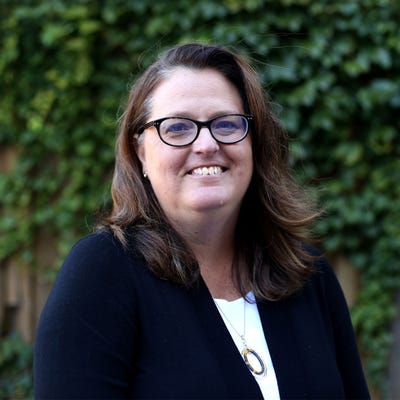'We're arming the rebels:' How Vori helps independent grocers compete via modern purchasing tech'We're arming the rebels:' How Vori helps independent grocers compete via modern purchasing tech
Draeger’s Market and Mollie Stone’s Markets say Vori's operating system enables their employees to spend even more time focusing on customers.
February 24, 2023

Independent grocers are ready to reboot their systems, and Vori, a modern B2B operating system, is offering the solutions.
The company’s mission is to modernize purchasing for independent grocers by providing technology that connects data across the food supply chain, allowing independent grocers to replenish their shelves, and manage pricing and control inventory easily and efficiently.
Founded in 2019 as a grocery-tech startup, Vori now has a customer list that includes independent grocers Draeger’s Market and Mollie Stone’s Markets, both of which are seeing benefits from their tech investments.
Vori, which provides targeted tech to independent grocers as they compete in the grocery space against well-funded retail giants and big box retailers, is a team bonded by a “passion for technology and grocery,” according to the company’s website.
The co-founders of the company are Brandon Hill, CEO; Robert Pinkerton, chief technology officer; and Tremaine Kirkman, chief product officer. Vori is headquartered in East Palo Alto, California.
“Vori has a great founding team. We are founded by three Black, young men, which is not common in Silicon Valley and nor is it common in the grocery industry,” Hill told WGB.
The three founders met at Stanford University and have resumes that include tenures at tech powerhouses SpaceX, Twitter and Lyft.
With that kind of technical DNA, it’s no surprise they made the list of Forbes’ 30 under 30 in 2022. “We may not be building rockets, but sometimes it feels like we’re doing a form of rocket science for the grocery industry,” Hill said.
Vori was founded as a nod of appreciation to Hill’s parents, who spent their 40-year careers in the grocery and consumer products space. Hill recognizes that the grocery industry has changed significantly over those decades.
“The tectonic plates of the grocery industry have shifted, especially for independent grocers,” Hill said. “The labor shortage, the supply chain crisis, inflation and the rise of e-commerce have magnified and accelerated the need for independent grocers to gain visibility and control over their businesses.”
With grocery store technology now coming out of dormancy, Hill said Vori gives mom-and-pop grocers a better spot on the roster to compete. The company announced last fall the completion of a $10 million Series A funding round. The capital is being used to bolster its talent acquisition pipeline, expand its U.S. operations and broaden its product offering, the company said.
“Our modern solution gives independents access to technology that levels the playing field between them and Amazon, Whole Foods, and Kroger-Albertsons,” Hill said. “We’re arming the rebels.”
Vori, which eliminates the need for independent grocers to track inventory and manage reorders via traditional spreadsheet programs, is receiving positive feedback from its customers, including Richard Draeger, owner of Draeger's Market.
The San Mateo, California-based retailer, which also operates stores in Menlo Park, Los Altos and Danville, California, has been a fixture in the Bay Area for over 90 years. With a reputation as a purveyor of high-quality gourmet foods, Draeger said Vori was instrumental in managing inventory and helping the grocery retailer plug in digitally.
“I’ve been in the business my entire life, and this is a third-generation family business that is 97-years-old, so a lot of what Vori is working on with us have been things that, honestly, we’ve been trying to solve as long as I’ve been in the business,” Draeger told WGB.
Vori’s capabilities have been a timesaver for Draeger’s Markets by allowing employees to gain back as much as 20% of their time that had been spent on back-office accounting and spreadsheets, he said. Now, Vori frees up workers to focus on “creating a customer experience” on the store floor, Draeger said. “There is an awful lot of category management that is going to be emerging as a result of our partnership with Vori," he noted.
Draeger said he has been impressed by the company’s knowledge of the grocery industry.
“These guys are very, very high on the overall learning curve,” Draeger said.
Paying attention to the needs of small grocers makes big business sense: Despite mounting pressure on independent grocers from wholesale clubs, discounters and big box retailers, independents still contribute more than $225 billion to the economy annually, or about 1.2% of the U.S. gross domestic product, according to a recent study conducted by the National Grocers Association. The group represents 21,000 independent grocers throughout the U.S.
On Monday, the 2023 NGA Show in Las Vegas will feature a presentation with Vori CEO Hill from 8:45 a.m. to 9:30 a.m.
Mollie Stone’s Markets, which began as a natural and organic food market in 1986 but has since expanded its concept to include traditional grocery options, is another Vori customer. The grocery retailer, which has nine locations in the San Francisco area, credits Vori for being not only a game-changer for the retailer but also a welcoming professional partner.
“The attitude they [Vori] have coming into the industry in support of the independent grocer is so refreshing and we’re excited to work with a company like Vori,” said Aaron Stone, VP of business development at Mollie Stone’s Markets.
Vori helps Mollie Stone's better organize data and streamline relationships with vendors and other business partners, Stone told WGB, adding that the technology is giving the grocer's employees more time on the floor to interact with customers.
Independent grocers face stiff competition from bigger retailers, but Stone believes the motives are vastly different between the two.
“Larger chains are going after market share and the independent philosophy is not as concerned about market share as we are about servicing our community and our people that live around our stores,” Stone said.
About the Author
You May Also Like






